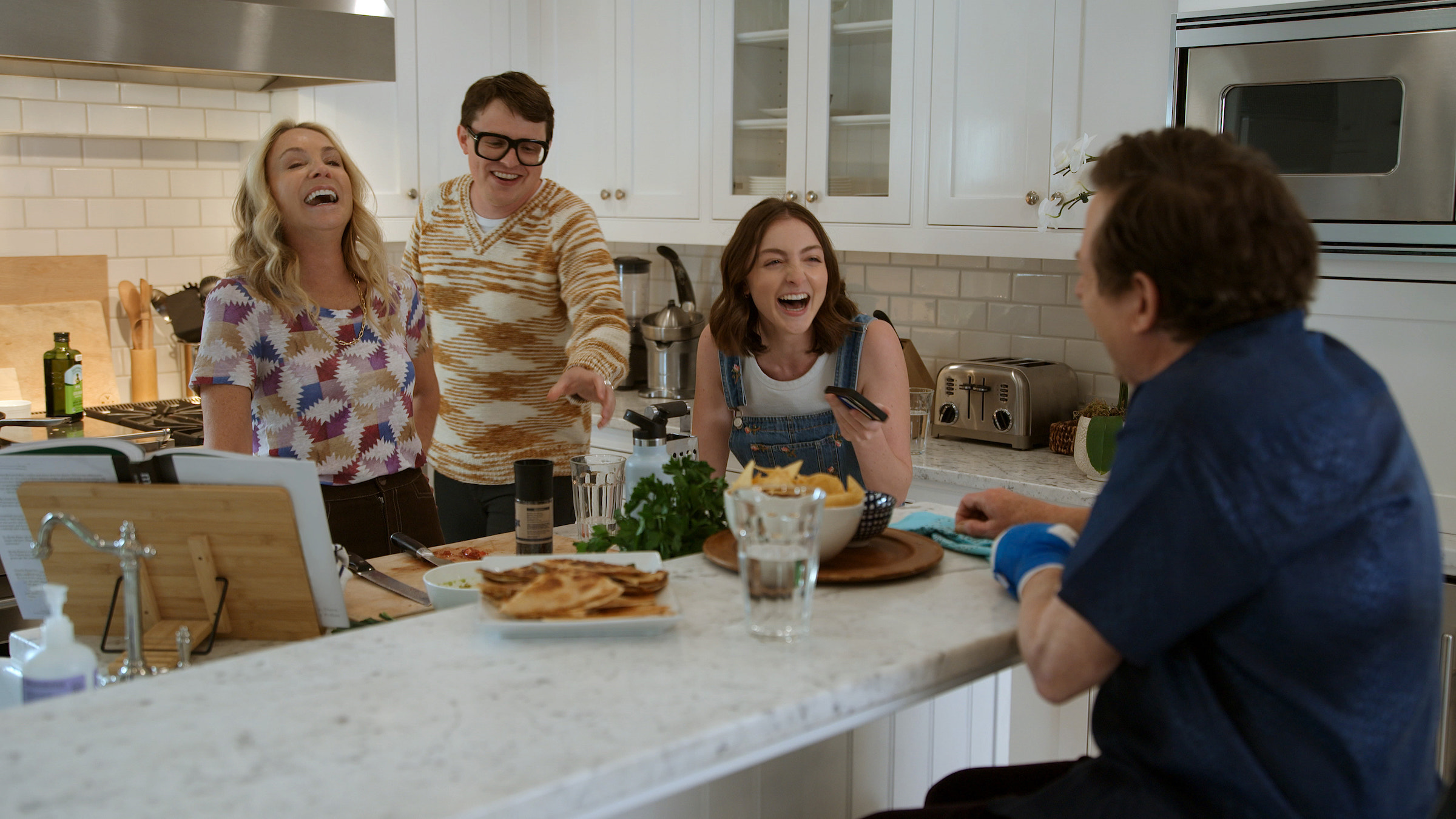If it were up to us to choose the fates of the performers we care about, millions of people would want to wish Michael J. Fox’s Parkinson’s away. Few actors of the 1980s and ’90s gave us as much pleasure: On TV’s Family Ties, his characterization of teenage conservative Alex P. Keaton was so artful that even die-hard liberals could get a kick out of it. In 1985, as the charmingly incredulous Marty McFly, he traveled back in time to make a match between his own parents. And in the sharp ’90s-era sitcom Spin City, he played peripatetic New York City deputy mayor Mike Flaherty, doing his best to avert municipal crises despite his bumbling staff. Fox’s nervous energy was a kind of radiance, an animating force that audiences warmed to. After he was diagnosed with Parkinson’s disease in 1991, at age 29, he hid his condition for as long as he could. When he finally revealed his illness to the world, it seemed cosmically unfair that such a likable performer, so gifted at physical comedy in particular, should have to suffer this way.
There’s no way to put a positive spin on Parkinson’s. But how we handle the cards we’re dealt is everything, and Davis Guggenheim’s remarkable documentary Still: A Michael J. Fox Movie reminds us that a person stricken with a disease doesn’t become that disease. Fox’s condition continues to deteriorate as he ages (he’s now 61). Though the boy he used to be is still right there in the impish planes of his face, his limitations have increased; he’s frequently injured as the result of unavoidable falls. But he’s still Michael J. Fox, and Guggenheim, an astute interviewer, paints a picture of where he’s at today that’s unsparing but also terrifically—if also somewhat darkly—funny. When Guggenheim asks Fox where he thinks he’ll be in 20 years, his brow furrows, and it takes a few seconds for the answer to travel from brain to mouth. “I’ll either be dead or … a pickle,” he says, the kind of spontaneous, out-there joke you have to be Michael J. Fox to make.
Read more: The 21 Best Documentaries to Stream Now

What’s striking about Still is how celebratory it is. This isn’t the story of a wonderful actor felled by an illness; it’s the story of a wonderful actor, period, beginning nearly at the beginning (with a re-enactment of an incident in which toddler Michael, growing up in Canada, runs off to the local candy store on his own) and moving briskly through Fox’s career, which ambled along for several years before taking off like a rocket. “I was the boy prince of Hollywood,” he says, recalling the multiple sports cars he was able to buy once he hit it big. A vintage TV clip shows Shelley Winters asking him point-blank who he’s sleeping with. Before marrying fellow actor Tracy Pollan, in 1988, he most certainly had his pick.

Guggenheim and his editor Michael Harte make artful use of clips from Fox’s films to illustrate the events of his life. A sequence in which Fox describes a particularly grueling three months, during which he worked on Family Ties by day and spent most of the night filming Back to the Future, is almost alarmingly effective—just watching it makes you feel pooped.
But the most extraordinary scenes in Still are the ones showing Fox with Pollan and their grown children, sitting around the kitchen and making one another laugh—sometimes not in spite of Fox’s limitations, but because of them. One of his greatest gifts is that he can laugh at himself, maybe more so now than ever. At one point in the documentary, Guggenheim realizes he hasn’t asked Fox if he’s in pain. “I’m in intense pain,” Fox answers. When Guggenheim asks why he hasn’t mentioned it at any point during filming, Fox says plainly, “It didn’t come up”—a line so funny it hurts.
More Must-Reads from TIME
- Donald Trump Is TIME's 2024 Person of the Year
- Why We Chose Trump as Person of the Year
- Is Intermittent Fasting Good or Bad for You?
- The 100 Must-Read Books of 2024
- The 20 Best Christmas TV Episodes
- Column: If Optimism Feels Ridiculous Now, Try Hope
- The Future of Climate Action Is Trade Policy
- Merle Bombardieri Is Helping People Make the Baby Decision
Contact us at letters@time.com